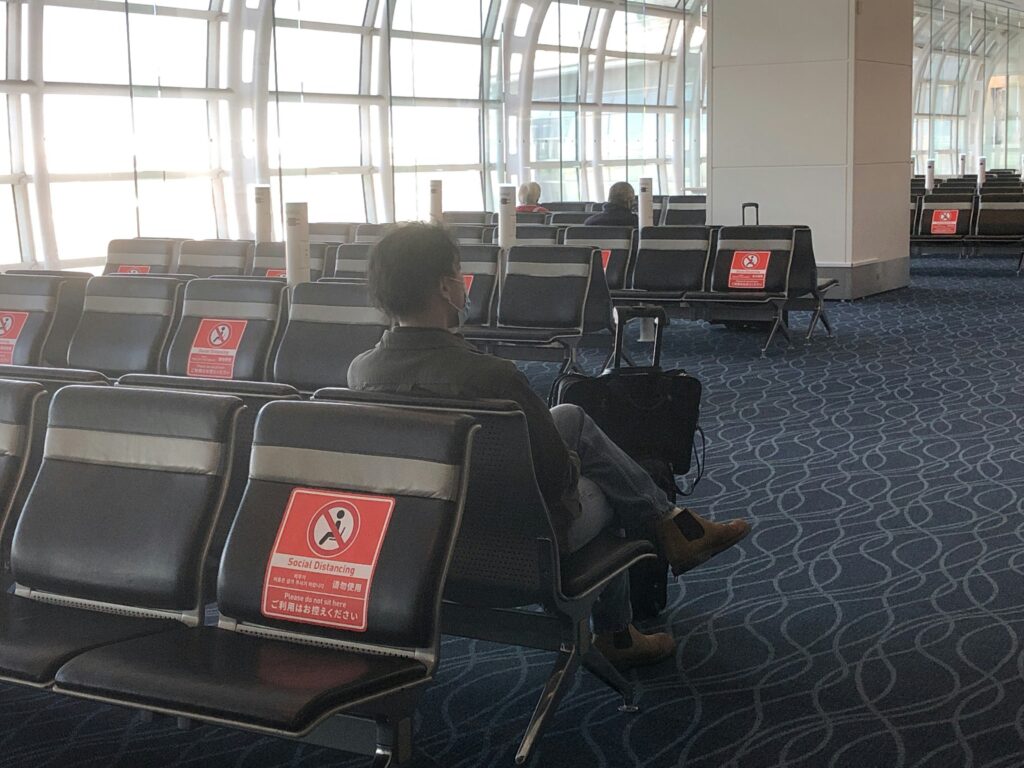
Evolving Travel Norms in a Post-Pandemic World
The travel industry has faced unparalleled challenges during the pandemic, leading to significant shifts in traveler behavior and preferences. As tourists begin to venture out once again, new norms have emerged that prioritize safety, hygiene, and flexibility. One of the most pronounced trends has been the heightened emphasis on cleanliness and health protocols. Travelers are now more vigilant about their accommodations and the environments they frequent, favoring options that showcase stringent hygiene standards and Contactless services.
Moreover, flexible booking policies have gained prominence, as consumers seek assurance against potential changes in travel circumstances. Many airlines and hotels have adapted to this demand by offering easy cancellation and rescheduling options, thus fostering confidence among potential travelers. This adaptability helps to alleviate the anxiety associated with unforeseen changes, making leisure travel more appealing during unstable times.
Another notable trend is the shift towards individual accommodations. With a focus on reducing exposure to crowds, many travelers are opting for vacation rentals or boutique hotels rather than large traditional resorts. This preference reflects a desire for safer, more personalized experiences, often accompanied by a stronger connection to the destination. Additionally, domestic travel has surged, with individuals seeking to explore locales within their own countries. This trend not only supports local economies but also reduces the complexities associated with international travel restrictions.
The pandemic has also brought about a revival of solo travel, as individuals look for opportunities to reconnect with themselves and find solace in solitude. This can lead to a significant shift in group travel dynamics, which were once characterized by larger gatherings. Travelers now gravitate towards smaller, socially distanced experiences, allowing them to enjoy their trips while adhering to safety protocols. These evolving travel norms serve as a reflection of the broader changes in societal attitudes towards health and well-being, emphasizing a new era of tourism that prioritizes safety, flexibility, and personal experience.
Safety Protocols: Ensuring a Secure Travel Experience
The COVID-19 pandemic has undeniably influenced the way the tourism industry operates, with a renewed emphasis on safety protocols to ensure a secure travel experience for all. Central to this shift has been the implementation of enhanced cleaning routines across hotels, airlines, and other transportation services. Establishments such as hotels have adopted rigorous cleaning practices, which include frequent disinfection of high-touch areas, use of hospital-grade cleaning products, and increased attention to overall sanitation. These measures provide travelers with a sense of safety while also reassuring clients who are concerned about their health.
In addition to enhanced cleaning, mask mandates have become a standard requirement in many destinations and modes of transportation. Airlines, in particular, have enforced mask-wearing throughout flights, helping mitigate the risk of airborne transmission. This practice has been supported by governments and health organizations that recognize the effectiveness of masks in controlling the spread of COVID-19. Most travel companies openly communicate these guidelines to their customers, ensuring that travelers are well-informed and can comply with the necessary health measures while journeying.
Vaccination requirements have also emerged as a vital aspect of safety protocols in the tourism sector. Numerous destinations now necessitate travelers to provide proof of vaccination before entry or during their stay. In some cases, airlines and travel companies have introduced policies to limit bookings to vaccinated individuals, emphasizing their commitment to passenger safety. As a result, these vaccination requirements serve as a tool for enhancing customer confidence, encouraging more people to travel knowing that those around them are vaccinated.
Through effectively communicating these safety protocols and adaptations, airlines and travel providers aim to bolster customer trust. By prioritizing health measures, the tourism industry is working diligently to create a secure environment, allowing travelers to explore the world with increased peace of mind in this post-pandemic era.
The Rise of the Digital Nomad Culture
The COVID-19 pandemic has heralded a transformative shift in the travel landscape, notably through the rise of the digital nomad culture. As remote work became a necessity during lockdowns, many individuals discovered the potential of working from anywhere, empowering them to blend travel with employment. This newfound flexibility has allowed people to pursue a lifestyle that combines adventure with professional responsibilities, leading to a surge in digital nomadism that is unlikely to dissipate in the post-pandemic world.
Popular destinations for digital nomads have emerged across the globe, often characterized by affordable living costs, reliable internet connectivity, and vibrant local cultures. Cities like Bali, Lisbon, and Mexico City have become hubs for this community, attracting travelers seeking inspiration and a global experience while maintaining their careers. The growth of these hotspots has prompted cities to invest in infrastructure that supports remote work, such as coworking spaces, high-speed internet availability, and vibrant communal areas, making them even more appealing for nomadic workers.
The tourism industry has responded enthusiastically to the rise of digital nomadism, adapting to meet the unique needs of this demographic. Hotels and hostels are increasingly offering long-term accommodation packages, while airlines have introduced flexible travel options to cater to an audience that plans ahead but values spontaneity. Additionally, local businesses have begun to offer services specifically designed for digital nomads, including networking events, workshops, and leisure activities, fostering an environment where remote workers can thrive both personally and professionally.
As digital nomad culture continues to grow, it also leaves a significant impact on local economies and communities. This influx of temporary residents contributes to the local economy through spending on housing, food, and services, often enhancing the economic vitality of the areas they inhabit. However, it is essential for communities to strike a balance, ensuring that the presence of digital nomads enriches local culture without leading to issues such as over-tourism or displacement of long-term residents.
Sustainable Travel: Embracing a Responsible Tourism Approach
In the wake of the COVID-19 pandemic, a significant shift towards sustainable travel has emerged as travelers become increasingly aware of their environmental and social impacts. This trend has prompted a collective reevaluation of the practices that define modern tourism, leading many to prioritize sustainability when planning their journeys. Eco-friendly accommodations, responsible tour operators, and community-based initiatives are gaining traction among conscientious travelers. The focus on sustainability underscores the desire for a tourism experience that is not only enjoyable but also beneficial to local communities and the environment.
Travelers today are more inclined to choose eco-friendly options such as green hotels, lodges that utilize renewable energy, and companies that practice sustainable tourism methods. These choices reflect a commitment to reducing one’s ecological footprint and supporting businesses that prioritize the preservation of natural beauty and local culture. Moreover, there is a growing emphasis on minimizing waste and achieving a balanced relationship with the destinations visited. This shift is pivotal in fostering a responsible tourism approach that respects local ecosystems and communities.
The travel industry is responding to this demand by implementing various sustainability initiatives. From carbon offset programs to the promotion of voluntourism, brands are designing experiences that allow travelers to engage positively with their destinations. Additionally, many organizations are advocating for local cultures, encouraging tourists to support traditional crafts, food, and cultural heritage, which in turn fosters a more equitable distribution of tourism benefits. Through these collaborative efforts, the tourism sector can not only thrive but also contribute positively to the socio-cultural and environmental fabric of the destinations they represent.
As more people shift their travel preferences, the emphasis on sustainable travel is expected to shape the future of tourism significantly. Travelers who embrace this responsible approach can help to create a world where travel enriches both the visitor and the host, leading to mutually beneficial experiences. The integration of sustainability into travel practices thus heralds a new era, where the focus is on mindfulness and ethical engagement.

